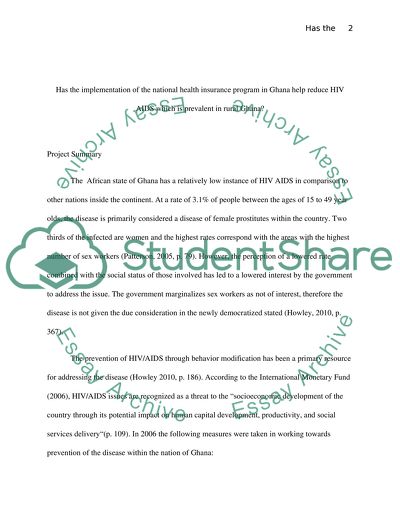Cite this document
(National Health Insurance Program in Ghana Research Proposal, n.d.)
National Health Insurance Program in Ghana Research Proposal. Retrieved from https://studentshare.org/health-sciences-medicine/1568970-does-the-implimentation-of-the-national-health-insurance-program-in-ghana-help-reduce-hiv-aids-which-is-prevlant-in-rural-ghana
National Health Insurance Program in Ghana Research Proposal. Retrieved from https://studentshare.org/health-sciences-medicine/1568970-does-the-implimentation-of-the-national-health-insurance-program-in-ghana-help-reduce-hiv-aids-which-is-prevlant-in-rural-ghana
(National Health Insurance Program in Ghana Research Proposal)
National Health Insurance Program in Ghana Research Proposal. https://studentshare.org/health-sciences-medicine/1568970-does-the-implimentation-of-the-national-health-insurance-program-in-ghana-help-reduce-hiv-aids-which-is-prevlant-in-rural-ghana.
National Health Insurance Program in Ghana Research Proposal. https://studentshare.org/health-sciences-medicine/1568970-does-the-implimentation-of-the-national-health-insurance-program-in-ghana-help-reduce-hiv-aids-which-is-prevlant-in-rural-ghana.
“National Health Insurance Program in Ghana Research Proposal”, n.d. https://studentshare.org/health-sciences-medicine/1568970-does-the-implimentation-of-the-national-health-insurance-program-in-ghana-help-reduce-hiv-aids-which-is-prevlant-in-rural-ghana.


